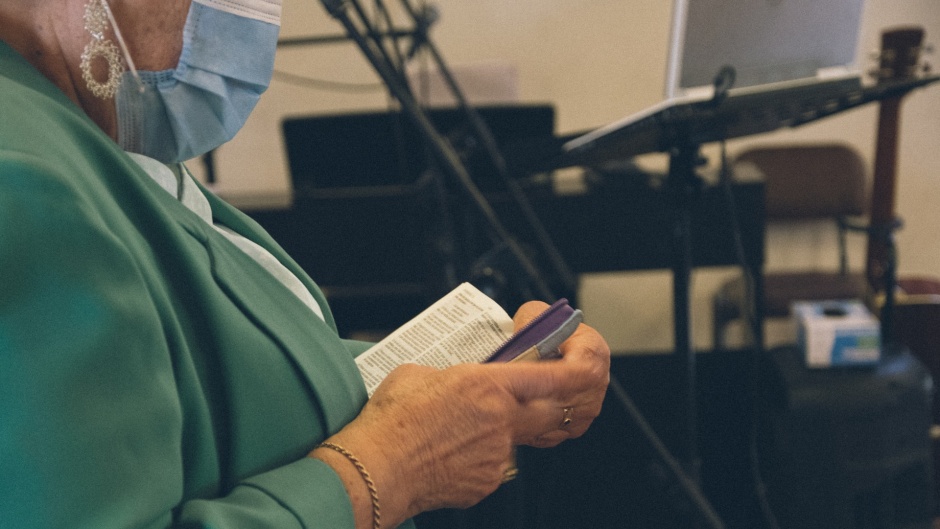Christians in Europe look back on the effects of the Covid-19 crisis
The effects of the restrictions are analysed by churches in Germany, Slovakia, UK and Portugal.
19 JULY 2023 · 15:38 CET

Three years after the Covid-19 outbreak that lead to a closure of almost everything in Europe, there is a conversation in several countries about what went well and what went wrong.
In Germany, theologians of the Evangelical Church (EKD, the mainline Protestant Church) met in the city of Erfurt to look back at how the social crisis was handled. The Bishop for Central Germany, Friedrich Kramer was quoted by the news agency EPD as saying that some restrictions implemented to contain the coronavirus were “terribly excessive”. Most difficult decisions, he admitted, were taken with less available information than now.
One of the mistakes was that church buildings were closed for too long, the bishop thinks. The Protestant Church also failed to acknowledge the internal critical voices. Rochus Leonhardt, a theologian, pointed to the fact that the Protestant Church presented the vaccination as an almost “sacred” act.
Christine Lieberknecht, former Prime Minister of the German state of Thuringia and also a former Protestant minister, criticised that “up to then recognised scientists were labelled as cranks overnight because they did not like to follow the majority opinion”.
The fear of some German citizens that freedom restrictions seen during the pandemic might be used in the future in other socio-political contexts was also mentioned during the gathering.
Slovakia: Restrictions brought to the Human Rights Court
In Slovakia, where worship places were closed for many months, a group of Christians brought the Covid-19 restrictions in the country to the European Court of Human Rights, in Strasbourg.
“Religious freedom as a basic human right must be given the highest level of protection. Everyone has the right to live according to their convictions. Prohibiting people from doing so is profoundly illiberal and non-democratic”, stated Jan Figel’, former EU Special Envoy for the Promotion of Religious Freedom, who led the initiative.
“Worship bans are an unfair and disproportionate infringement on the right to religious freedom, as evidenced by the significantly greater flexibility and openness elsewhere in Europe. National judicial decisions Europe-wide (for example in Germany and France) have shown that worship bans are religious freedom violations”, he added.
UK: evangelicals engage with Covid-19 inquiry
In the United Kingdom, the Evangelical Alliance (EAUK) has called churches to actively participate in the Covid-19 inquiry launched by the government.
The ‘Every Story Matters’ website “examines a wide range of themes around the UK’s response and the impact of the pandemic, in order to learn lessons for the future”, the evangelical body said.
The Evangelical Alliance advocacy team met with the UK Covid-19 Public Inquiry team recently. “They were interested to learn more about the different ways in which Evangelical Alliance members supported their communities during the pandemic”.
This why the EAUK “strongly encourages” churches to respond to the government inquiry as it is “an opportunity for evangelicals to tell that story. How will the government learn about the compassionate responses of the evangelical community if we don’t share our stories with them?”.
At the end of 2021, the Alliance published the outcome of a survey asking churches about the effects of the pandemic and government restrictions. It showed a general fall of attendance and difficulties to find volunteers.
The evangelical body has also criticised that the temporary measures to allow early medical abortions at home was made permanent after the Covid-19 crisis, saying it “devalues the lives of unborn children” and presents safety challenges for women.
Portugal: more social projects of churches
In Portugal, data about the effects of the Covid-19 crisis on evangelical churches has been also published recently.
The crisis led to an increase in churches that have social projects (from 16% to 29% between 2020 and 2023), said the Portuguese Evangelical Alliance. Church attendance has “grown in the post-pandemic” for most churches (53%).
Churches like this one in Sintra opened their premises to become vaccination centres.
Published in: Evangelical Focus - europe - Christians in Europe look back on the effects of the Covid-19 crisis
